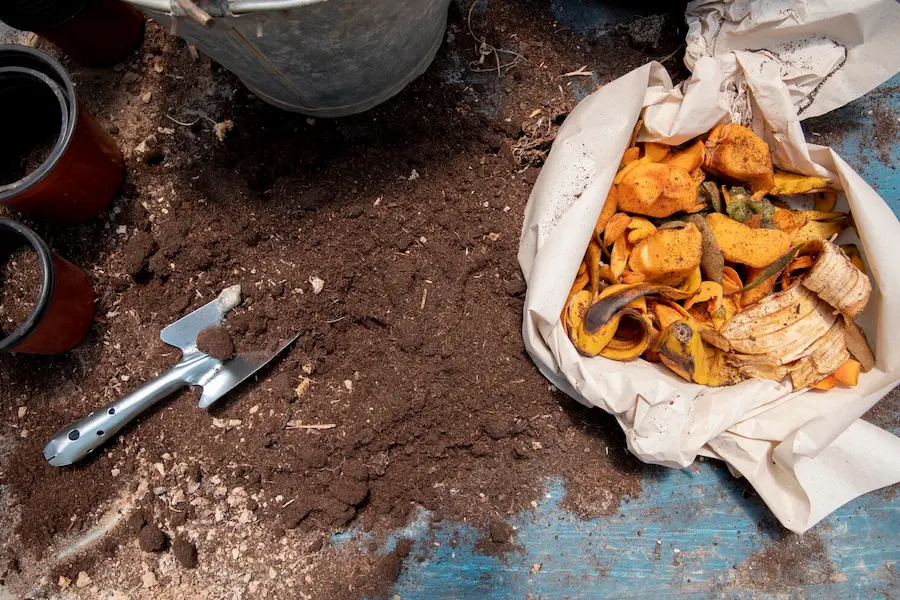Food waste is one of the most pressing challenges faced by the global food industry today. As commercial kitchens play a significant role in the food service sector, they also contribute heavily to food waste. With approximately 30-40% of the global food supply ending up as waste, the need for effective strategies to minimize this issue is more urgent than ever. That’s where food service consultants come in, bringing their expertise to transform kitchens into efficient, waste-conscious spaces.
Reducing food waste in commercial kitchens is not only a moral imperative but also a financially sound decision. By implementing smart food management practices, restaurants, hotels, and catering services can reduce costs, improve operational efficiency, and contribute to sustainability efforts. So, how can commercial kitchens make a difference? Let’s explore actionable strategies to turn the tide on food waste.
Accurate Inventory Management: Track What You Have
One of the main reasons food waste occurs is due to over-purchasing or improper stock management. When perishable items are ordered in excess, they often spoil before they can be used. An efficient inventory management system can make a significant difference in reducing waste. Digital tools and software allow commercial kitchens to keep track of the quantity, shelf life, and usage rates of ingredients. Real-time data on inventory helps kitchen managers make informed purchasing decisions, avoiding overstocking and the resulting waste.

The “First In, First Out” (FIFO) method ensures that older stock is used first, reducing spoilage. This simple yet effective practice, which many waste management consultants advocate, prevents unnecessary wastage and keeps storage spaces organized. Imagine a scenario where no ingredient is wasted because everything is accounted for—that’s the kind of seamless, waste-free environment every kitchen should strive for.
Optimize Portion Control: Serve Just the Right Amount
Oversized portions are a key cause of food waste in the food service industry. By optimizing portion sizes, commercial kitchens can reduce food waste significantly while enhancing customer satisfaction. Implementing portion control not only minimizes waste but also helps manage food costs. Measuring tools, portioning equipment, and staff training can ensure consistent serving sizes. Offering customers different portion options can further reduce waste, as diners can select portions that match their appetites.
Over 70% of diners would support restaurants offering reduced portions at lower prices. This approach not only reduces waste but also meets consumer demand for more personalized meal options. Imagine if every restaurant allowed customers to select just the right portion size—there would be far less food left on plates.
Plan Menus with Food Waste in Mind
Thoughtful menu planning can have a tremendous impact on reducing food waste. By designing menus that allow for ingredient cross-utilization, kitchens can avoid over-ordering and use up perishable items before they spoil. For example, incorporating tomatoes across multiple dishes means less risk of leftovers going unused.

Seasonal menus are also effective. Seasonal ingredients tend to be fresher, have longer shelf lives, and are usually more cost-effective. Many food service consultants suggest creating menus that utilize similar ingredients, allowing for maximum usage and minimal waste. Imagine a menu where every ingredient serves multiple purposes across dishes—this approach not only enhances flavour but also reduces waste significantly.
Invest in Proper Storage Solutions
Improper storage is a major culprit in food spoilage. Commercial kitchens should invest in high-quality refrigeration, shelving, and containers to extend the shelf life of their products. Temperature-controlled storage ensures that perishable items are kept at optimal conditions, reducing spoilage. Vacuum sealing or using airtight containers can also prolong the freshness of ingredients. Additionally, segregating food items based on their storage requirements—such as storing dairy and produce separately—can prevent spoilage caused by incompatible storage conditions. An organized storage space not only reduces waste but also saves time during food preparation.

Labelling and dating items in storage ensure that older ingredients are used first, preventing them from going unnoticed and eventually spoiling. Imagine if every ingredient was stored in optimal conditions and used before its shelf life ended—the potential for waste reduction is enormous.
Repurpose Leftovers and Scraps
Food scraps can often be transformed into delicious dishes. Many commercial kitchens are now repurposing food scraps and leftovers to create new menu items, a practice that is both sustainable and profitable. For instance, vegetable scraps can be used to make stocks, leftover bread can become croutons, and fruit peels can be candied or used in syrups.
Some of the world’s best chefs are known for creating gourmet dishes using ingredients that would otherwise be discarded. This approach to reducing waste is a hallmark of modern sustainable dining, championed by food service consultants who prioritize waste minimization. Imagine turning every leftover into something flavorful and appealing—this is sustainability and creativity at their finest.
Composting and Waste Segregation: A Sustainable Solution
When food waste is unavoidable, composting provides an eco-friendly alternative to landfill disposal. Composting turns organic waste into nutrient-rich soil, which can be used in agriculture or landscaping. By setting up composting systems in commercial kitchens, restaurants can make a positive environmental impact. Separating waste into categories—such as compostable, recyclable, and landfill—streamlines disposal processes and ensures that as much waste as possible is diverted from landfills. Many municipalities offer composting services, and some organizations even provide on-site composting solutions.

Imagine if every scrap of food waste was turned into a resource instead of ending up in a landfill—how impactful would that be for the environment?
Solutions and Innovations in Commercial Kitchen Design
Food waste reduction isn’t solely about policies and practices; it’s also heavily influenced by the design of the kitchen itself. At HPG Consulting, we understand that commercial kitchen design plays a crucial role in minimizing waste and promoting efficiency. From optimizing storage layout to streamlining preparation zones, a well-designed kitchen reduces waste, enhances workflow, and supports sustainable operations. HPG Consulting provides future-proof waste management solutions that help commercial kitchens meet their sustainability goals.
A kitchen designed with waste reduction in mind isn’t just more efficient and sustainable; it’s also more profitable.